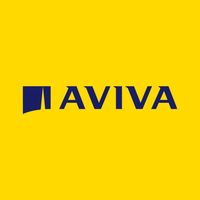How group risk benefits can mitigate business risk
Just as society started to return to its new ‘normal’, a new business risk was beginning to emerge. The Great Resignation has seen more people looking to change the direction of their career after the uncertainty during the Covid-19 pandemic gave them the chance to reflect on what’s important and motivated them to make change to both their home and working lives.
At the same time, employee expectations were beginning to change. The pandemic placed sickness, absenteeism and mortality at the front of people’s minds. High calibre prospective employees are now more likely to focus job searches to organisations with a strong reputation for looking after the health and wellbeing of employees.
Moreover, the growth of remote working means they’re less likely to settle for a company with a poor reputation just because its nearer home.
This change in employee attitude and behaviour has further highlighted the importance of having an attractive benefits package. It’s good business to recruit and retain good people. And taking wellbeing seriously gives enlightened employers a competitive advantage.
Controlling the risks
Given recent events, it’s not surprising many businesses are looking at ways to help mitigate future health and absence risks within their organisations. And they’re recognising the role a robust health and wellbeing strategy can play in helping to attract new talent and prevent employee attrition.
Considering its extensive breadth of support, group risk could be a good place to start. Encompassing income protection, critical illness and life insurance, group risk benefits are highly valued as they provide financial protection for employees and their families, yet are relatively inexpensive for employers compared with some other parts of the typical benefits package.
Group risk has come into its own over the past few years. Group life has offered loved ones a financial safety net to help them maintain a degree of certainty after bereavement. And group income protection has provided the financial and rehabilitation assistance so essential in supporting an employee through ill-health and beyond.
What’s more, Group Risk Development (Grid) research shows that interactions with embedded services like employee assistance programmes, online GP services, second medical opinion services and physical and mental health apps increased exponentially during 2020 to a record 138,222 interactions – compared with 74,707 during 2019.
Risk providers have evolved their offerings
Traditionally a policy designed to provide financial support, group risk cover now encompasses wellbeing benefits, mental and physical health support, rehabilitation and more. Some group critical illness policies automatically cover employees’ children and help if they’re diagnosed with a specified critical illness or one of the child-specific conditions covered in the policy.
As needs have changed, the best group risk providers have evolved their offerings to include specialist support for conditions such as Long Covid and extended specialist mental health and cancer support through specialists offering end-to-end rehabilitation help.
Prevention is key to any health and wellbeing strategy. Some cover will include facilities such as annual health checks, digital access to GP consultation, or support for mental health or nutritional issue. There may also be additional support for employers that enables a proactive approach to managing mental and physical wellbeing in the workplace. This might include training to help line managers identify signs of worsening mental health and hold appropriate conversations.
Helping neurodivergent employees
Group income protection can also play an integral part in a DE&I strategy – offering specialist support to help employers make appropriate workplace adaptions – for example, specialist support to help neurodivergent employees reach their full potential and guidance to help employers better support people experiencing menopause.
For many businesses, the pandemic has underlined that employees are their most important asset, and a prime determinant of overall performance. The safety net of group risk could help mitigates some of the risks associated with the current environment.
Supplied by REBA Associate Member, Aviva
Our purpose is to be with you today, for a better tomorrow.








